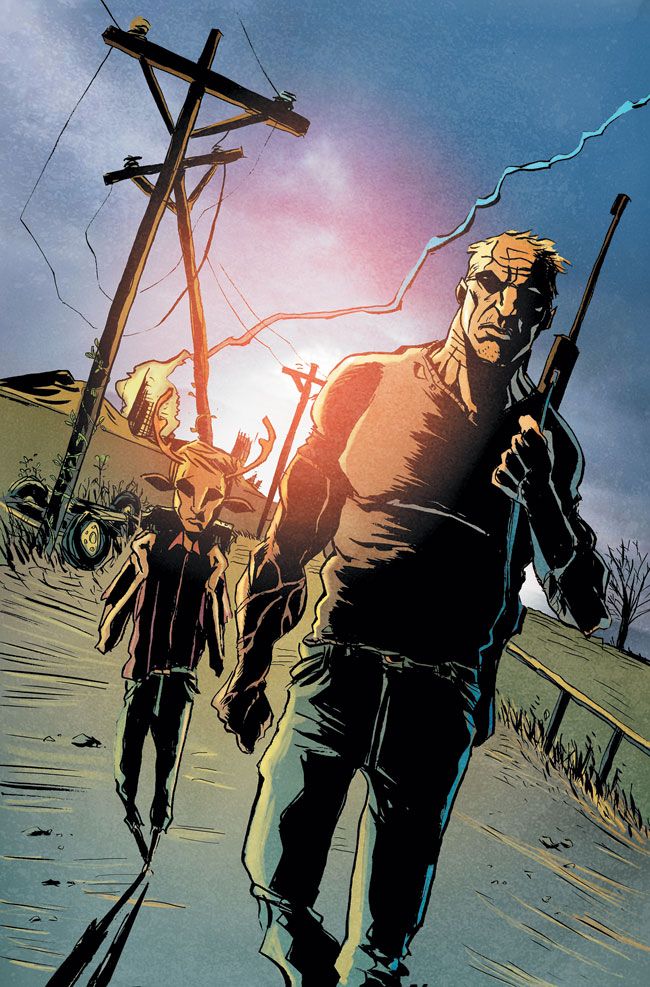The logo on the cover doesn't just say "Sweet Tooth," it says "Sweet Tooth by Jeff Lemire," a sign that, like most other comics produced by a single person, this is a book that requires a little extra care in noticing how the words and pictures interact since they were crafted by the same person. The relationship between the two in "Sweet Tooth" is very close and, as a result, it requires that you slow down since the drawings carry more story weight than most comics.
Anyone who is a writer-oriented reader places more emphasis on the story as told through words than through pictures, but Lemire places his emphasis more on the pictures to communicate things like mood and character elements. The words are sparse and mostly act to simply move the plot along, which is no small chore, just secondary to the function carried out by the art. Lemire passes that test that is sometimes applied to artists when discussing 'storytelling' where you ignore the words and see if you can follow along and, in this issue, you most certainly can.
Gus is a hybrid child, part human, part deer, a sub-species that cropped up during the last decade when some sort of plague afflicted the world. He's spent his entire life in the woods with his father who died last issue. In this issue, he finds a substitute father who claims that he can take Gus to a preserve for hybrid children and Gus ventures out of the forest for the first time in his life.
The man, Jepperd, has that old, grizzled Clint Eastwood look to him, except with more muscles; his speech patterns are similar to recent Eastwood roles as well, gruff but with some sense of kindness below the surface. The way his demeanor changes when he discovers Gus cowering in his cabin home does a lot to turn him from a possible threat who just killed two men to someone who may actually care about Gus and other children like him. Lemire uses close-ups of Jepperd's eyes, recalling a scene from the first page to point to the shift in his attitude.
Lemire's line work is dominated by thick, angular lines, a cross between a Sienkiewicz sketchiness and a Disney cartoony look, which works well in straddling the line between the rough and violent world he's depicting and the sweet, innocent nature of Gus. Some shots seem to purposefully recall family-friendly Disney films with Gus riding on the back of Jepperd's horse, a new little family unit instilled. This visual allusion works to Lemire's advantage as he plays with it throughout the issue.
At the same time, the story here is very simple and there isn't a lot to get invested in yet. The story is only getting started, but doesn't offer an easy hook unless you are captured by the plight of deer-like Gus. That I'm not probably says more about me than it does about "Sweet Tooth."
With "Young Liars" ended, it is nice to see that Vertigo has introduced another book driven by a singular creative vision and Jeff Lemire's work is strong and confident, and not exactly what you'd expect from Vertigo, in a good way.

